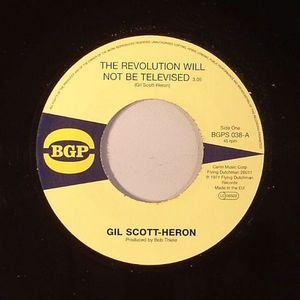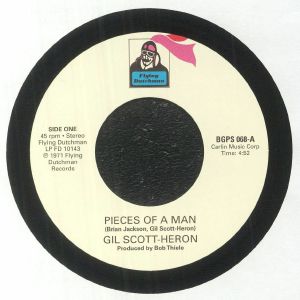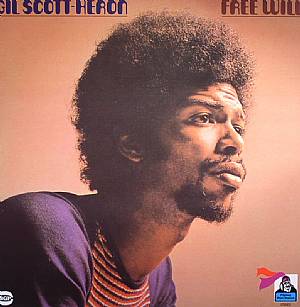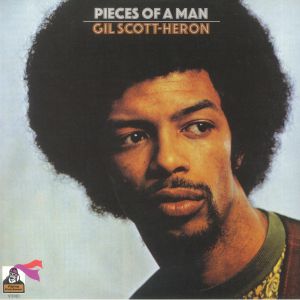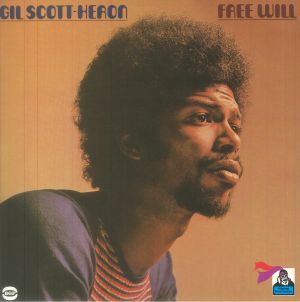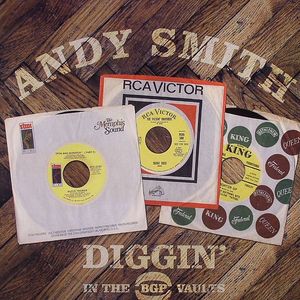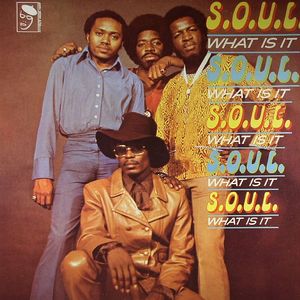Filter
Stock
Type
Label
Featured
Release Title
Price
Back catalogue:
Juno's full catalogue of
Singles
Review: Wow, classics don't come much more special than this. A like-for-like repress of the 1970 RCA release, both sides here are soaked in Scott Heron's raw troubled soul. The endlessly sampled, hugely powerful and perfectly funky "Revolution" remains almost as poignant and prophetic as it was the day it was penned. "Home Is Where The Hatred Is" is much more personal and reveals his talent as a singer as much as the lead track boasts his poetry and ability to deliver a strong message.
… Read morein stock $12.48
Review: Gil Scott-Heron's 'Pieces Of A Man' was the first LP recorded by the poet and musician, made and released in 1971. Owing to the album's importance, BGP have released two of its most standout tracks, the title track and 'Think I'll Call It Morning', on a limited 7" that will doubtess prove exceptionallyy handy for DJs who need to get straight down to business.
… Read moreIntérprete: I Love 45's!, Juno Recommends Soul
in stock $11.08
Review: Originally written by Richard Evans, instrumental track ''Burning Spear'' was subsequently covered by S.O.U.L, turning up as a standout on their debut album What Is It? in 1971; with its funky flute and heady bass it is nothing less than a bonefide golden classic. On the B-Side we're treated to the breakbeat heavy, vocal led "Do Whatever You Want To Do" from S.O.U.L's second long player Can You Feel It ?
… Read more in stock $12.48
in stock $12.19
Álbumes
Intérprete: BGP Records
in stock $26.59
Pieces Of A Man (AAA 2 Disc Edition) (gatefold 180 gram vinyl 2xLP)
Cat: XXQLP 2094. Rel: 27 Oct 22
Review: Originally planned for release last year to mark the 50th anniversary of the album's creation, Gil Scott-Heron's most renowned full-length returns in stunning, audiophile quality sound. This time round, the album has been stretched across two discs, both of which have been pressed at 45rpm for louder sound. Created by Scott-Heron and musical sparring partner Brian Jackson with the assistance of producer Bob Thiele, Pieces of a Man remains an incredible album, with a string of classic cuts - think 'Home is Where The Hatred Is', 'The Revolution Will Not Be Televised' and 'Save the Children' - being joined by such lesser-celebrated delights as the fizzing 'Lady Day and John Coltrane', the blissful 'I Think I'll Call It Morning' and 'A Sign of the Ages'.
… Read moreIntérprete: Craig Charles Funk And Soul, Juno Recommends Soul
in stock $40.19
Review: Gil-Scott Heron was at the peak of his powers when he recorded Free Will as a follow-up to career highlight Pieces Of A Man. Originally released in 1972, it's steeped in the song craft of its predecessor and charged with the polemic that elevated his work to some of the greatest to ever shine a light on the Black American experience. The likes of 'Speed Kills' show just how tender Scott-Heron could be, while 'Did You Hear What They Said?' Ranks as one of the most heartbreaking tracks he ever committed to tape. 'The King Alfred Plan' and 'No Knock' prefigure rap as the legend's impassioned poetry rides on the rawest of percussion tracks. It's, quite simply, a masterpiece.
… Read more in stock $32.44
Intérprete: Scratchandsniff, Andy Smith
in stock $22.72
Intérprete: BGP KENT ACE KENT SOUL
in stock $21.62

 USD
USD





